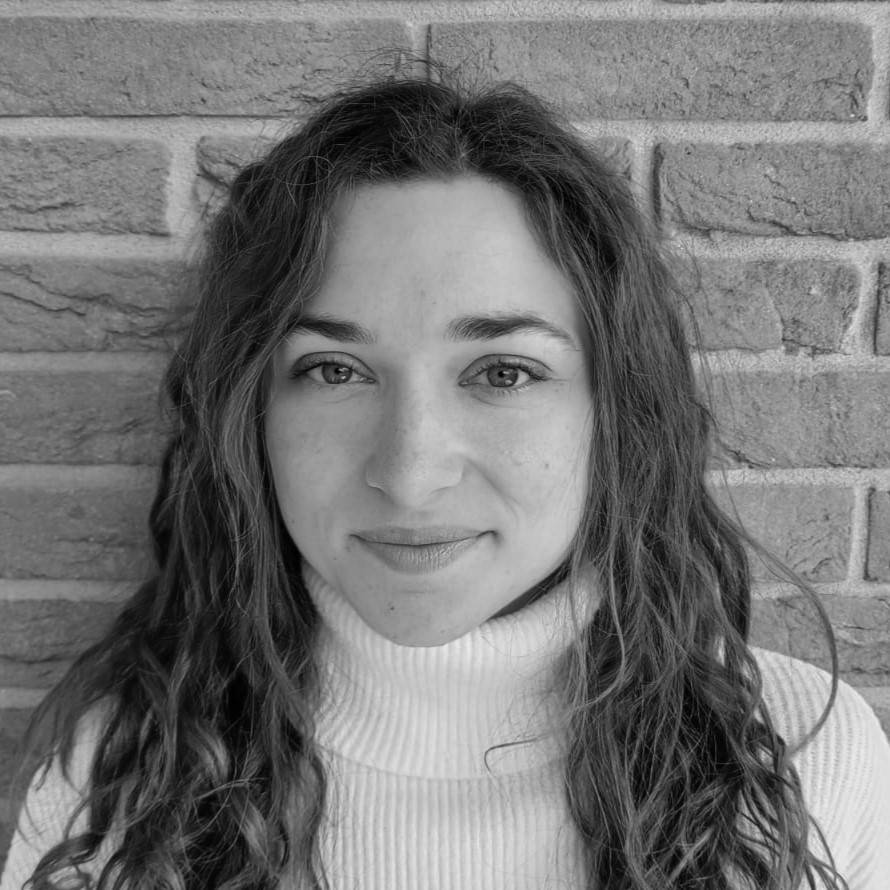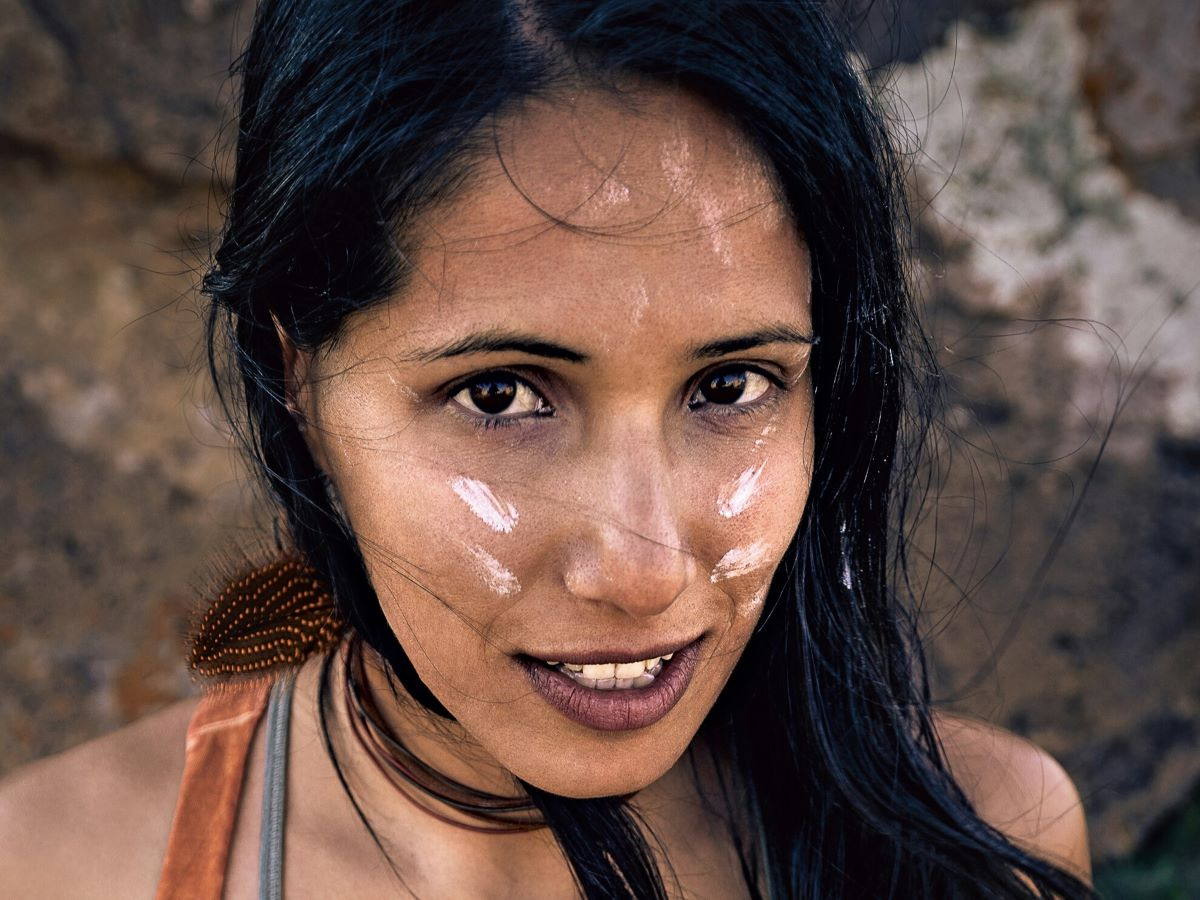This article is also available in Italian / Questo articolo è disponibile anche in Italiano
“I’m an Alpinist and a passionate advocate for women’s rights using my platform and strength to amplify the voices of those who are oppressed. My climbing journey represents breaking barriers, and I strive to inspire others by sharing my story. I see my struggles as part of a large movement for equality and freedom.”
This is how Nasim Eshqi introduces herself to those who do not know herstory. A professional alpinist originally from Iran, author of the book Ero roccia, ora sono montagna (Garzanti, 2024), she currently lives in Italy, has opened more than one hundred new climbing routes worldwide and supports women's rights. She was one of the speakers at TEDxMilano, which took place at the end of October in Milan, entitled Freedom, in which the concept of freedom was in fact portrayed in different ways: freedom to speak, to move, in the architectural field, in cuisine, and even in the disadvantages of too much freedom. Renewable Matter, who was present, interviewed her to highlight her story.
How did your passion for climbing start?
I was introduced to climbing by chance while hiking in the mountains. I joined a university group where we had a trainer who opened up this incredible world to me.
Why did you leave Iran?
Actually, I didn’t really leave; I just couldn’t return. In September 2022, while climbing in the Alps, I heard the news about Mahsa Amini. I could no longer stay silent against a regime that has oppressed women for over 40 years. I began to speak out, and later realized that returning to Iran was no longer an option. I had nothing with me but my climbing gear.
And why did you choose to come to Italy after that?
Italy has always held a special place in my heart with its stunning nature, beautiful sea, majestic mountains, and warm, friendly people. The love and hospitality in the air, along with the sunshine, are simply irresistible. Let’s ignore the bureaucracy part which is like adding pineapple to pizza!
In your TEDx, you spoke about losing sponsors when you chose to leave Iran. Which difficulties did you encounter?
I didn’t lose sponsors simply because I couldn’t return to Iran; rather, I chose to end my collaborations. When I asked my European sponsors to join me in raising awareness about women’s rights, they declined. Their reason was to avoid upsetting wealthy clients from oil-rich Muslim countries where women’s rights are barely acknowledged. This was a line I couldn’t cross. I didn’t want to represent or associate myself with companies that prioritized business interests over such a critical issue. Starting over in Europe with only my climbing gear was incredibly difficult. None of my documents from Iran were recognized in Italy, creating countless obstacles even in the most basic areas. For instance, despite over 20 years of driving experience with an international license, I had to start from scratch by completing the entire driving course; both theory and practical; entirely in a new language. Navigating this process was incredibly time-consuming, especially for a qualification I had held for so long. This is just one example. You can imagine the struggle for rebuilding a life, re-establishing credentials, and adapting to a different system. compounded by a complete lack of economic support. While I believe in resilience, what truly drains me is knowing that my energy could be focused on advancing my profession instead of re-earning qualifications and rights I had already achieved. Despite all these obstacles, I will keep on speaking out for women's rights. Because I believe in Human power.
What is your relationship with Iran today?
I have a deep emotional connection to my language and to its resistance against Arab invasion for two centuries. While almost every country lost their languages, we in Iran still speak Persian. The current generation, who reject this oppressive Islamic regime, represents a light that will not be extinguished. This shift is fueled by knowledge, and knowledge is power. No one can stop them on their path to freedom. This revolution has already been won. Iranian women have shaken the world, creating not just a fleeting wave but a profound awakening. Though the regime may seem in control, they are exhausted by the resilience of the new generation, which they cannot dominate without force. And we Iranian women will not give up until the day of freedom.
How has climbing shaped your views on gender equality and freedom?
While climbing, we are all equal, as gravity pulls all of us down with the same force. It doesn’t ask if you are a girl or a boy, black or white, or what is your nationality. The rule of gravity and nature. This gave me a real sense of equality and freedom. Each ascent reinforces my belief that everyone, regardless of gender, should have the opportunity to pursue their passions and dreams."
Speaking about mountain, climate change is currently deeply affecting the mountainous ecosystem. What are the risks of climbing, and what do you think climbers can do to limit their impact on the ecosystem?
Knowledge is power, and this applies equally to human rights and climate change. By raising our awareness of our surroundings, we can move beyond superficial actions, like simply remembering to bring our bags to the supermarket while still purchasing over-packaged products. Climbers face risks from climate change, such as unstable terrain and unpredictable weather, which can be intensified by our own actions. To make a real difference, we must educate ourselves about the ecosystems we explore and their vulnerabilities. This means transitioning from words to action. By understanding our impact, we can advocate for broader changes that address both environmental and social justice issues, ensuring that our love for climbing contributes to a healthier planet and a fairer society for all.
What advice would you give to young women in restrictive societies pursuing their passions?
Never lose hope and never give up on your dreams. Restrictive societies fear your bright dreams which will come true, so dare to dream bigger; dreams are the fuel for determination in the face of obstacles. With knowledge and skills that empower you, always challenge societal norms while speaking out for what you believe in. There is light, and you are the light in a dark society. And the most important is that you are not alone in this journey; together, we will illuminate the future.
An example is how you raise awareness about human rights by dedicating mountain routes to this topic.
When we open a new route in the mountain, it carries the name forward for others to climb, allowing its message to resonate for years to come. I’ve opened two significant routes dedicated to human rights: one in Chamonix, France, named "Raise Up for Human Rights," and another in the Dolomites, Italy, called "Woman, Life, Freedom." I plan to continue this project by opening and naming more routes that focus on women’s rights and human rights movements. My goal is to echo the voices of freedom through the mountains and beyond, ensuring that these messages of resilience and advocacy remain alive and inspire others to join the fight for justice.
What are your professional and personal goals for the next five years?
My professional goals for the next five years include climbing diverse rocks and walls around the globe, facing new challenges while advancing my career in advocacy and climbing, with a strong focus on raising awareness for gender equality and freedom particularly for children living under oppression, ensuring their voices are heard and their dreams can be realized. I aim to create impactful initiatives that empower women around the world and collaborate with organizations aligned with these values to drive meaningful change. including the fight against child marriage in all over the world. Ultimately, my goal is to inspire others through my experiences, strengthening a sense of connection and responsibility toward one another, as we are all interconnected like a mountain chain.
Images: Nasim Eshqi



